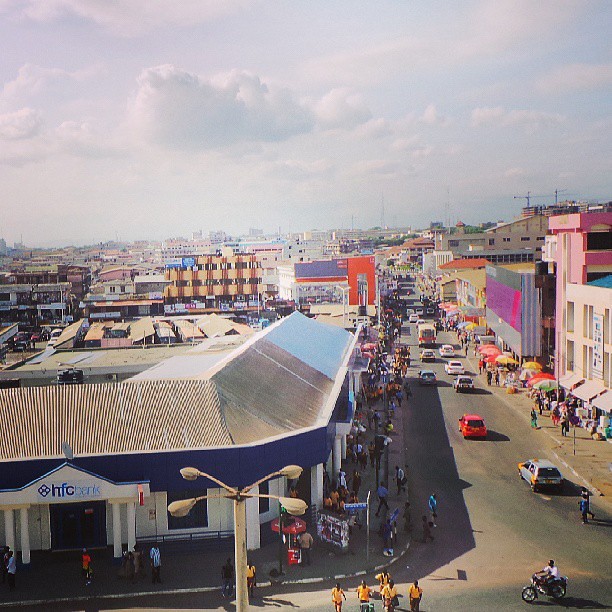Accra, Ghana’s dynamic metropilis capital, is a unique mosaic of modernization and tradition. Highlife music blares against a rapidly shifting urban landscape in this city, where vibrant textiles and handcrafted handicrafts abound in busy markets and ancient customs are still practiced alongside gleaming skyscrapers. By exploring Accra, one may get a close-up look at this dynamic intersection and observe how the city navigates its rich past while embracing the future.
A Legacy Rooted in Tradition:
Accra’s ancient Ga roots are intricately entwined with its history. The city’s culture and traditions have been permanently shaped by the Ga people, who were its first occupants. Tradition penetrates every aspect of daily life, from the lavish burial festivities that demonstrate a deep regard for ancestors to the lively Homowo festival that honors a period of hunger victory. These traditions are living, breathing components that continue to influence the city’s identity; they are not just artifacts from the past.
The vibrant Central Market is a sensory assault of hues, noises, and scents where one can observe this directly. Here, market women, who are frequently dressed traditionally, serve as both business owners and cultural information keepers, transferring knowledge and customs from one generation to the next. In a similar vein, the street-side herbalists and traditional healers provide an insight into age-old medical customs that are nevertheless applicable in urban areas with access to contemporary medical care.
Embracing a Modern Future:
Alongside its traditional foundations, The capital of Ghana is a city rapidly embracing modernity. Gleaming office towers pierce the skyline, symbolizing economic growth and ambition. A burgeoning tech scene is attracting young entrepreneurs and innovators, eager to develop solutions for local and global challenges. International brands are making their mark, catering to a growing middle class with increasing access to global trends.
The city’s artistic expression also reflects this fusion. Modern art galleries showcase contemporary works that often grapple with themes of identity, colonialism, and the challenges of navigating a globalized world. Restaurants offer a diverse culinary experience, blending traditional Ghanaian dishes with international flavors. This embrace of modernity is not simply about adopting Western trends; it’s about adapting and integrating them into the existing cultural fabric, creating something uniquely Ghanaian.
The Delicate Balance:
Preserving cultural heritage in the face of rapid development requires careful planning and intentional efforts. Ensuring that the benefits of economic growth are shared equitably and sustainably is crucial to avoid exacerbating existing inequalities. Striking a balance between embracing the new and honoring the old requires open dialogue, community engagement, and a commitment to safeguarding the city’s unique character.
Experiencing the Dichotomy:
Visit the Jamestown neighborhood, a historic fishing community where traditional Ga culture thrives alongside crumbling colonial architecture. Explore the National Museum, which offers a comprehensive overview of Ghanaian history and art. Attend a contemporary art exhibition to witness the city’s evolving creative landscape. Savor a traditional Ghanaian dish like fufu and light soup, then try a modern interpretation at a trendy restaurant.
More than merely a city, Accra is proof of the resilience of culture in the face of change. It’s a location where the past influences the present and a generation committed to preserving their legacy while welcoming the boundless potential of a world that is changing quickly is shaping the future. Every tourist to Accra has a one-of-a-kind and remarkable experience as the beat of tradition blends with contemporary music.
